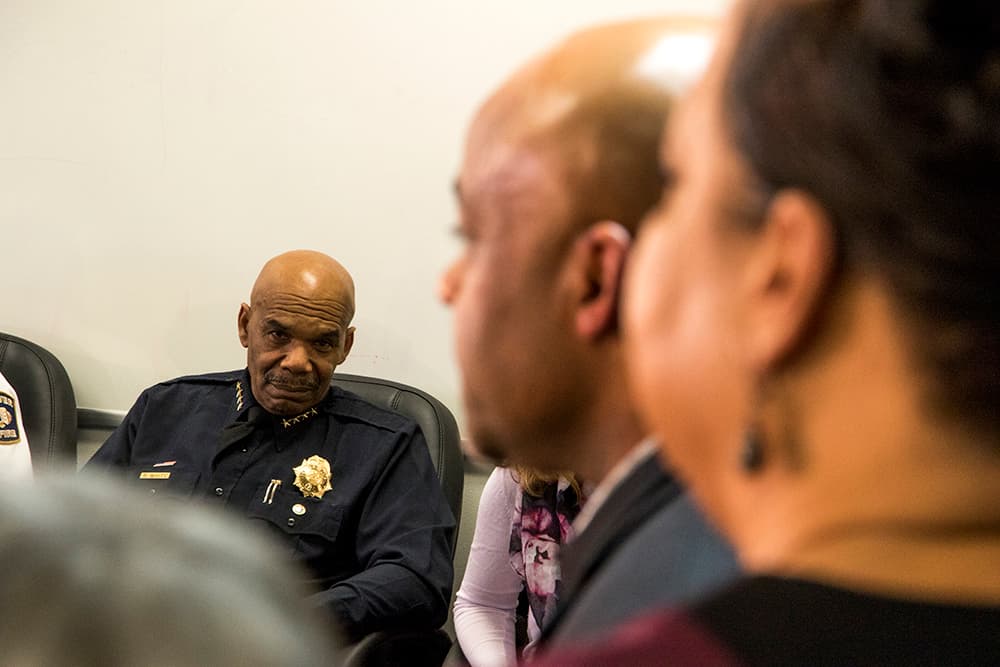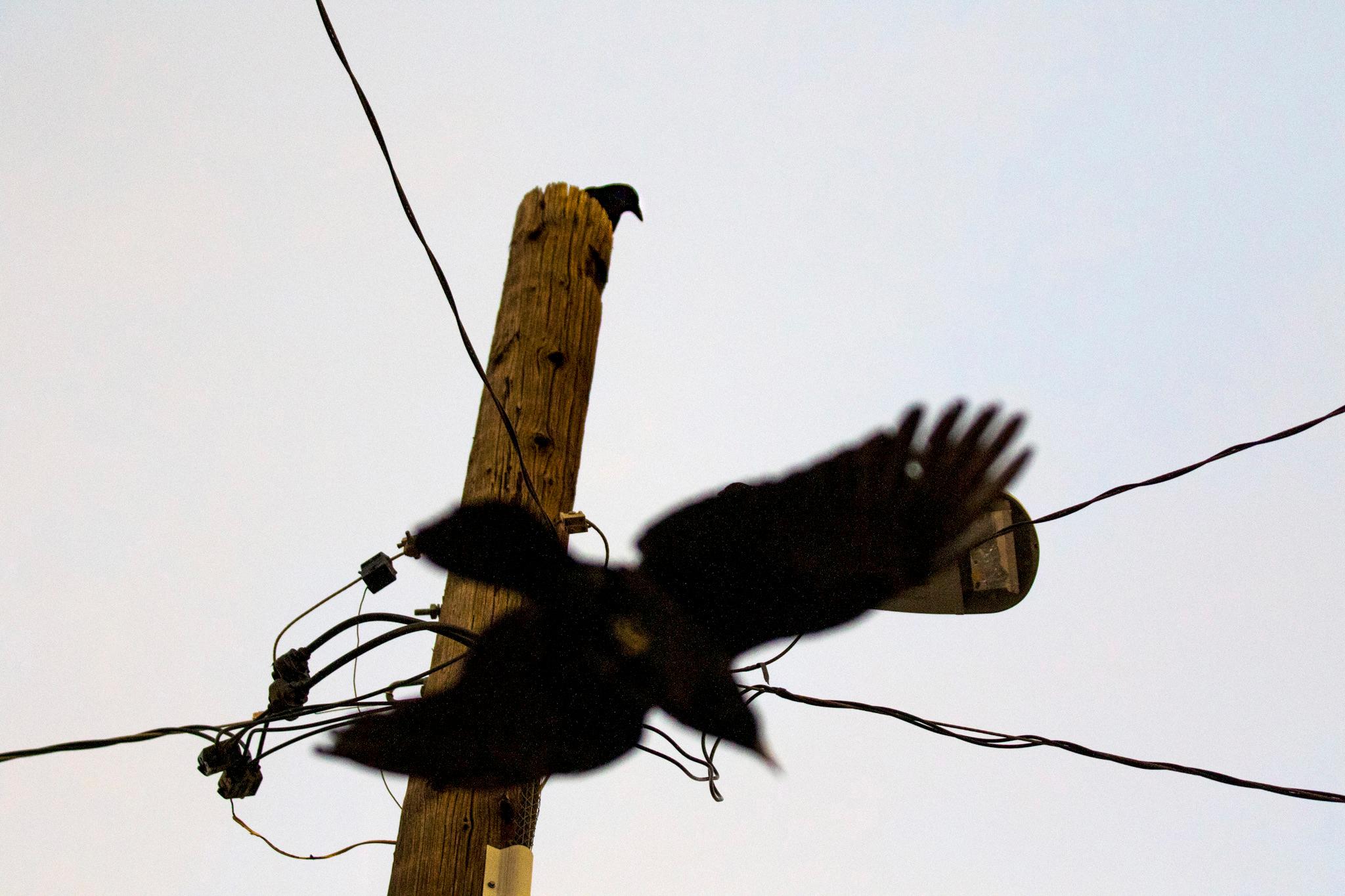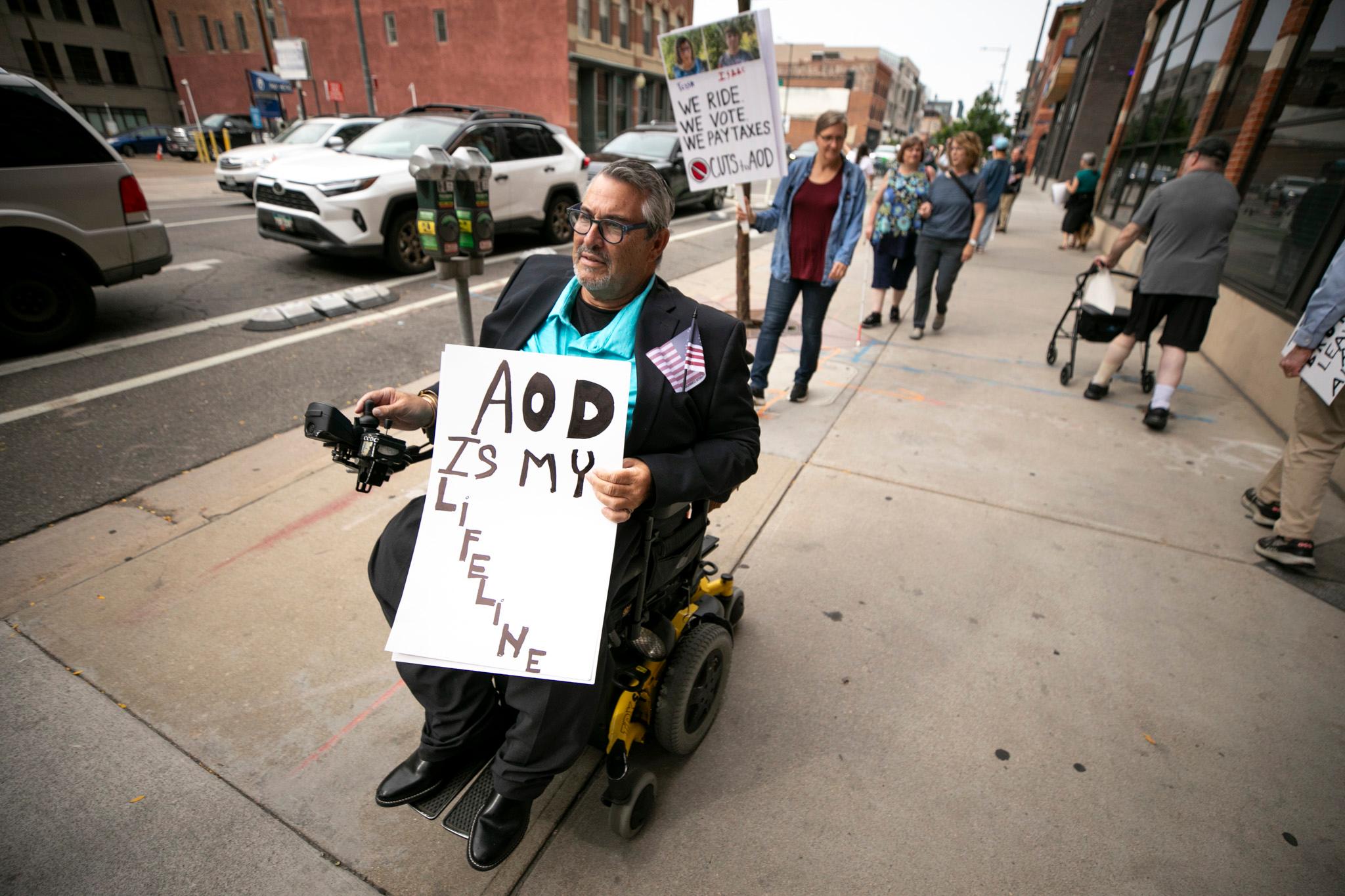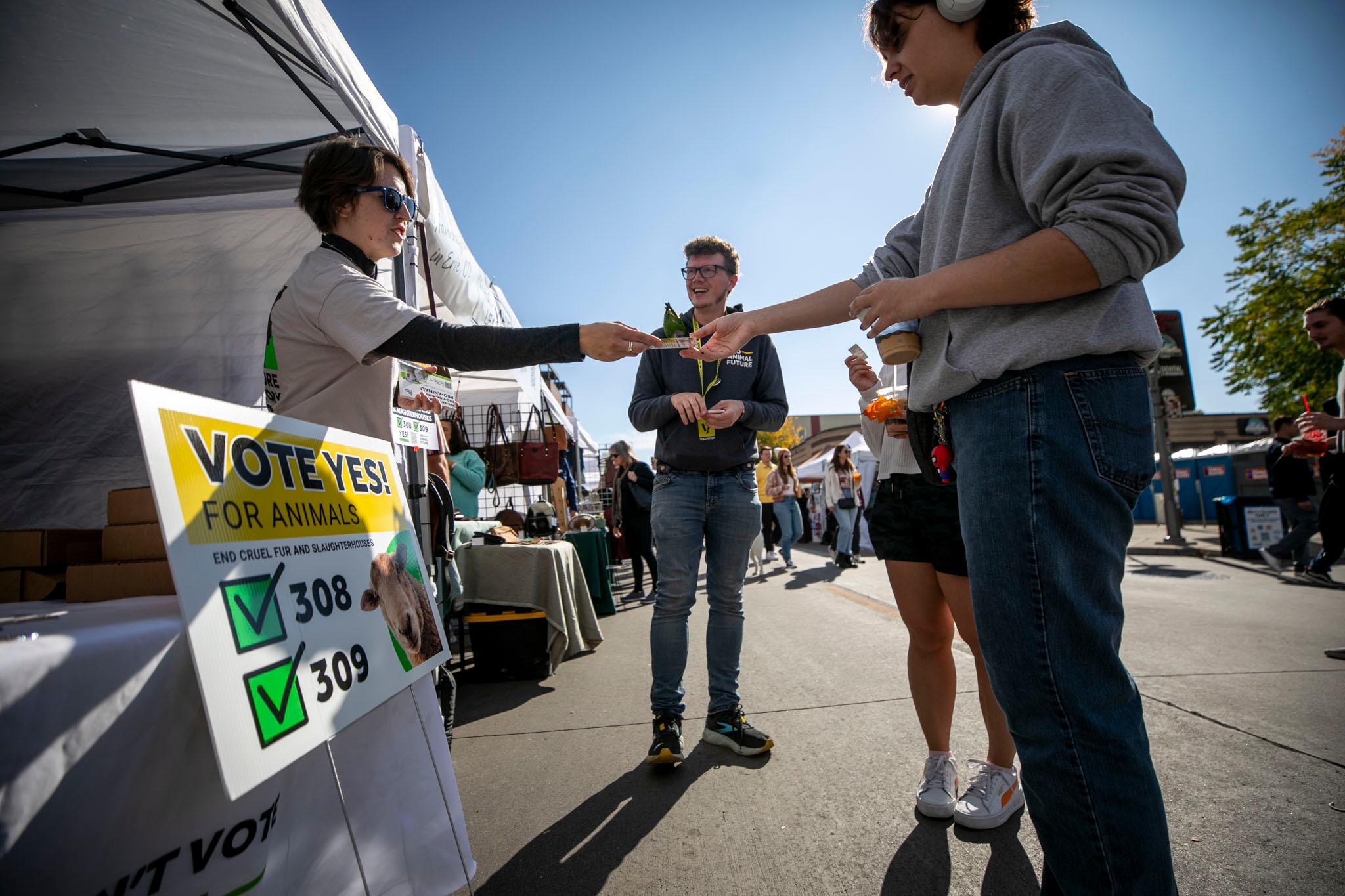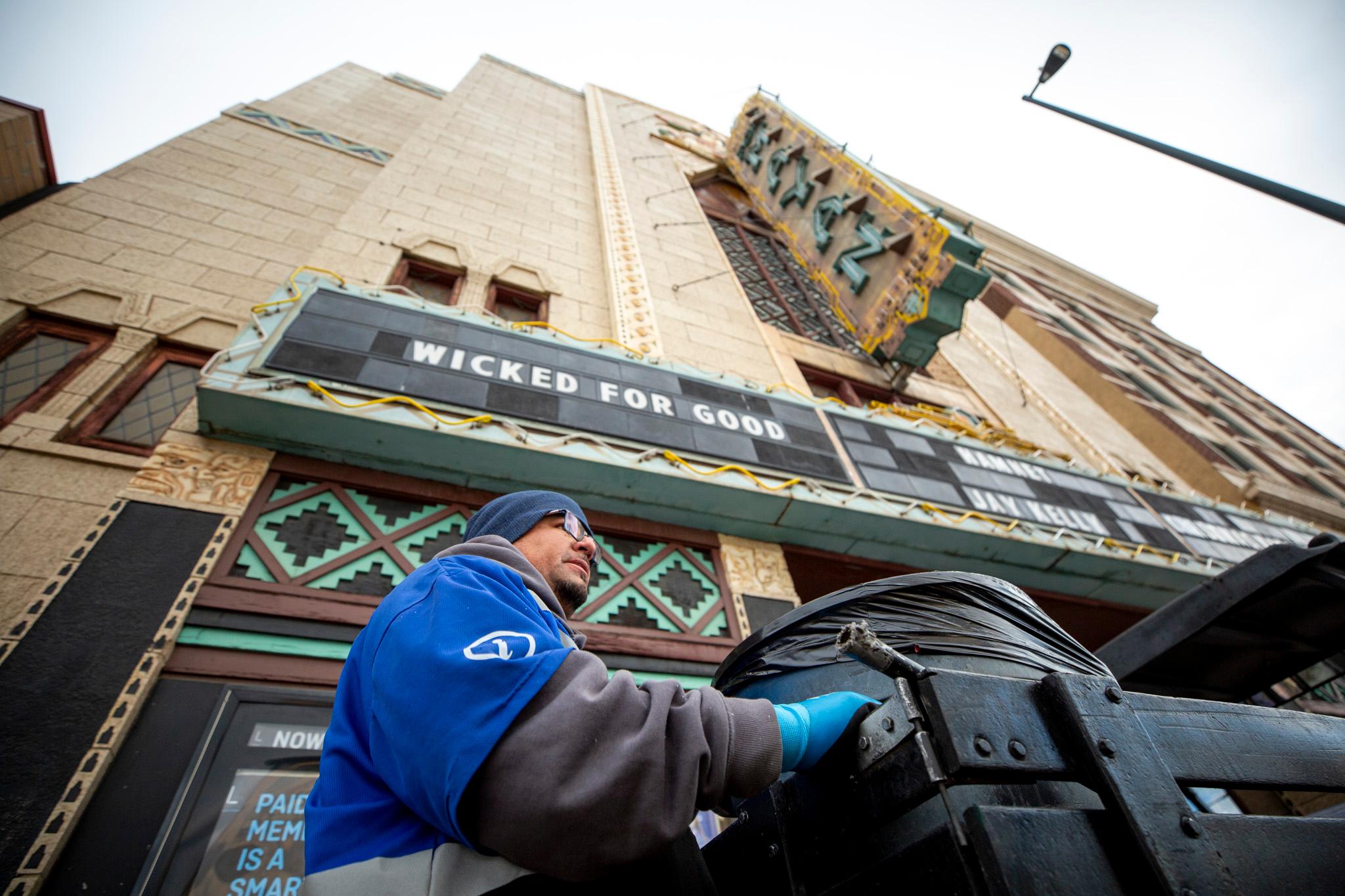Who told Denver police to arrest a woman despite the fact that they had evidence that potentially showed her innocence?
Why did police leaders ignore a public records request about the case, despite the fact that they knew they had a relevant document? And who was really leading the investigation?
The people involved still don't agree on the answers to these questions, but a newly released city report details how a strange and long-running scandal came to be.
In response, Mayor Michael Hancock said today that he won't discipline Chief Robert White for his involvement, but he called for the chief to "hold himself to the highest standard," and exercise "more professionalism." (Hancock also was referring to White's separate involvement in a car chase.)
The document shows a tense relationship between former district attorney Mitch Morrissey and the Denver Police Department.
It found, too, that Chief White does not read many of the public records requests that cross his desk, and that his deputy chief also failed to provide a controversial letter in the case.
Meanwhile, Morrissey said that the mayor's decision is exactly what he expected.
"I'm not surprised at all," the former DA said in an interview on Monday. "I just think it sends the wrong message to those guys, these women and men that are out there, that (White) gets a pass ... but they never get one."
This started with a reportedly false allegation.
In April 2016, a caller (referred to as "NJ" in records) told a member of the Avon Police Department that she had been sexually assaulted by a male police officer and a woman a few days earlier.
She showed a lewd video of a man in a Denver Police Department uniform to prove it, and she said that the woman also had assaulted her.
On May 3, Denver police arrested one of their own, then-officer Davin Munk. On May 4, they arrested a woman named Angiella Arnot, and they sent press releases naming both people as suspects.
Within days, however, the district attorney's office had decided to drop the felony charges against both of the accused.
The reason: Police had found messages on the reported victim's phone “specifically indicating that the actions were agreed upon by NJ prior to the event.” She also had made public internet posts “involving rape and wanting to be pulled over by a cop," according to the new city report.
At the time, Munk told Fox31 that the three participants had set up rules and boundaries for the encounter, and that he and Arnot had assured NJ that "no" still meant "no." (In Colorado, consent must be continual. If sex continues after a party demands a stop, it's rape or sexual assault.)
The district attorney wasn't happy about this.
Mitch Morrissey was the leader of the Denver District Attorney's Office at the time. The DA's office ultimately decides whether to take cases to trial, and they have a lot of influence over police investigations.
He had some major concerns. Most importantly: Police had NJ's cell phone, with the exonerating evidence, the day before they arrested Arnot.
The data "needed only to be downloaded," the DA wrote in a letter to Chief White in May 2017.
Earlier, Morrissey had approached Deputy Chief Matt Murray after an event commemorating fallen police officers, and said he was unhappy with Murray's "cavalier" attitude in the conversation.
“My major concern was that an innocent woman went to jail for three days," Morrissey told Denverite.
Whose case was it?
Morrissey also criticized Murray for sending the case to the wrong person at the DA's office.
There had been a policy for more than 30 years that said certain people were designated to handle cases involving police officers. The first person on that list was out sick.
Morrissey himself should have been the next choice, he said -- but Murray instead called on someone who was not as familiar with law-enforcement cases, according to Morrissey.
That decision contributed to the arrest of an apparently innocent woman, he continued. "The reason we had the on-call system was for that very reason: What do we do?" Morrissey said.
For his part, Murray told investigators that he had contacted a DA staffer who "has extensive experience in sexual assault investigations," and who "happened to be sitting at her desk and was willing to come help us."
Later, police department members would put the explanation for the arrest on that attorney, Adrienne Greene, portraying her as the leader of the investigation.
Murray said he was on a camping trip at the time of the arrest.
He took "many calls" from the department while he was camping, according to call records, but he contended that "the calls were about getting updates on the case and at no time was he asked about the arrest of Ms. Arnot," the city report states.
For her part, Greene told investigators that the innocence-proving messages on the cell phone were "not readily available" before the arrest.
So, Morrissey wrote his letter to the chief.
It was the only such letter he wrote in more than 30 years in the DA's office, he said.
In it, he laid out how he thought Murray had "rushed to judgment" and caused a woman's arrest, public ridicule and embarrassment.
White didn't see it that way. The chief felt that the DA's letter was "inaccurate" and "an attempt to undermine (White) ... and that gave him reason to question the entire tone and nature of the letter," the investigators reported.
But another high-ranking police employee, deputy chief of operations David Quiñones, said that Chief White at least should have opened an internal case to look over the accusations in the DA's unusual letter.
"Why a case was not generated, that’s a question for the Chief. I don’t know. And I’m not saying that it would have proven that something wrong was done, but you at least have to take that concern off the table and address it," he told investigators.
Morrissey said that city law enforcement didn't take his letter seriously, with White later saying it was simply a "difference of opinion," rather than a complaint. A complaint would have triggered an independent review.
"I didn’t expect White to do anything about it,"Morrissey said on Monday. "I just needed to write the letter because of what happened, and White did nothing, and it looks like they’re going to do nothing about it."
Why were records requests ignored?
Over the course of 2016 and 2017, the Denver Police Protective Association made several records requests seeking communications between police and the DA's office about the case.
That would include Morrissey's letter, which hadn't been made public at the time -- but the police department didn't hand it over until investigative reporter Tony Kovaleski specifically asked about it.
Murray had said he didn't know of any records that matched the request -- an omission that potentially violated records laws.
Chief White said that he did not read the records requests, which were forwarded by administrator Mary Dulacki. He "said he does not open emails that are (Colorado Open Records Act) requests," unless they are addressed solely to him, according to investigators.
Instead, White said he thought Murray would handle the request "because that would be normal." The police chief receives several CORA emails per day, the investigation stated.
However, White also defended Murray. He had told Murray to "stay out of it," and believed that his deputy would have been "violating this directive" by helping to find the letter.
So, according to the investigation, White expected Murray to generally handle records requests, but also didn't expect him to handle requests on this specific topic, and neither man designated someone else to handle it.
White said he would have provided the letter if someone had asked him directly, and he eventually did. The safety department's Conduct Review Office found the chief had made a "very cogent argument" about the matter.
And White refused to take the blame. "I am not accepting any responsibility for being careless as it relates to this," he said in the report.
The current DA, Beth McCann, said the department handled the requests "carelessly," but declined to press charges.
Murray said that at the time of the request, he was having a family crisis and was busy working on the police department's use-of-force reform.
He claimed he had "made a good faith search," but apparently forgot about the scathing letter that the district attorney had written about him months earlier. Nick Rogers, president of the police union and a frequent critic of police leadership, said this was "impossible."
Morrissey said it's understandable that White doesn't do the administrative work of answering records requests, but he argued that the department's overall failure fell on the chief.
"It’s my understanding that that search took seconds — for the secretary to produce the record," he said.
The mayor said the chief needs to tighten up.
But Hancock didn't find the chief did anything "knowingly" wrong, and he declined to discipline White.
“It does not appear that Chief White knowingly or intentionally withheld documents from the public,” Hancock said in a written release.
“However, poor communication and unwritten, internal practices allowed the request to be responded to inaccurately. That should not have happened as we value being open and transparent," he said.
Hancock has asked the new safety director, Troy Riggs, to develop more rigorous standards for records.
Riggs is a friend of Chief White and worked closely with him in Louisville. Their relationship has attracted questions about whether he could fairly handle inquiries about the chief's behavior.
In this case, Riggs' office reviewed the investigations, and "members of his team" advised the mayor that White hadn't committed any violations. Hancock made the final decision on discipline.
Hancock also suggested that Morrissey and Murray could have handled their dispute with "a simple phone call." The investigation cost $87,000, Fox31 reported.
In a written statement, White said that he had been wounded and tried by the scandal.
"My integrity and the trust the community places in me as its chief means everything and both have been called into question as I awaited resolution of these cases. Although I was confident the facts would ultimately support no wrong-doing on my part, stories void of these important facts have impugned my reputation for more than a year," White said in the release.
"It has been a difficult time for the members of the Denver Police Department, my family, and quite frankly, for me personally. While I recognize I could have handled certain aspects of each case differently, I look forward to putting these incidents behind me and the department as we continue to focus on the important work of protecting and serving the community."
However, that's not necessarily the end of the matter for Murray.
The sheriff's department is still reviewing the investigation into Murray and will send it on to the Office of the Independent Monitor. The final say in that matter will go to Riggs.
Denverite reached out to the Denver District Attorney's Office for comment. They declined to make Greene available. "She remains a valued and respected senior prosecutor in this office," wrote spokesman Ken Lane.
Current DA Beth McCann had no further comment, Lane said.
Dulacki, the records administrator, told Denverite that she had no comment. Arnot did not immediately respond to a request for comment. Munk could not be reached for comment.

